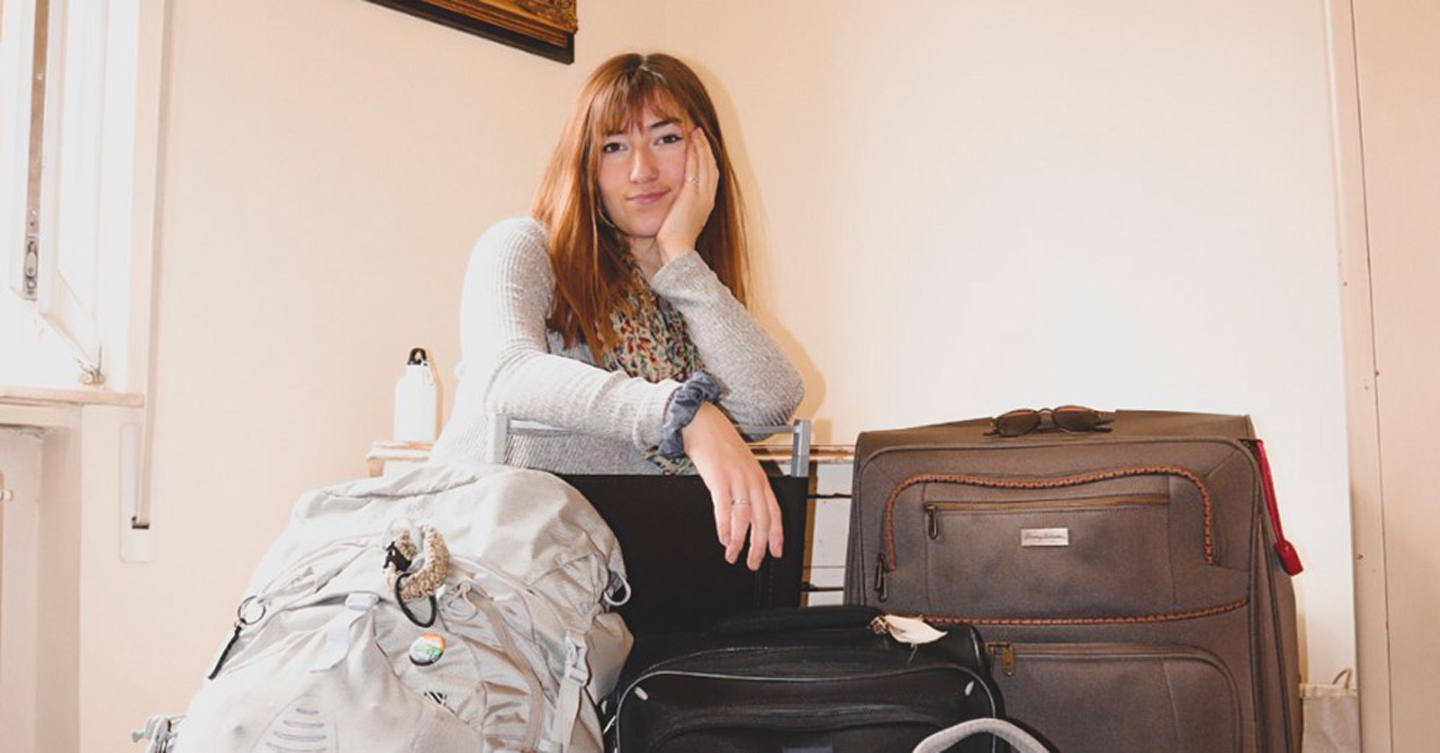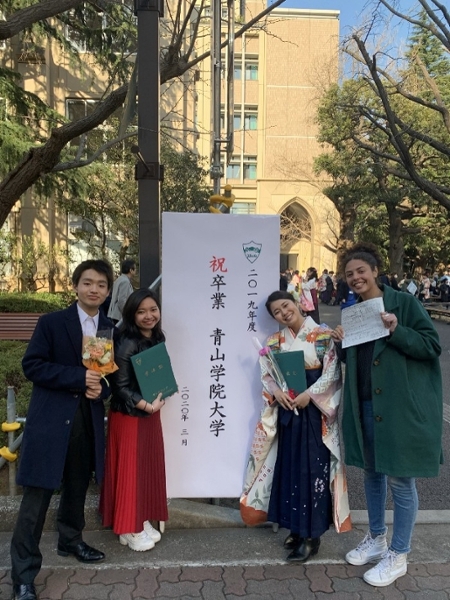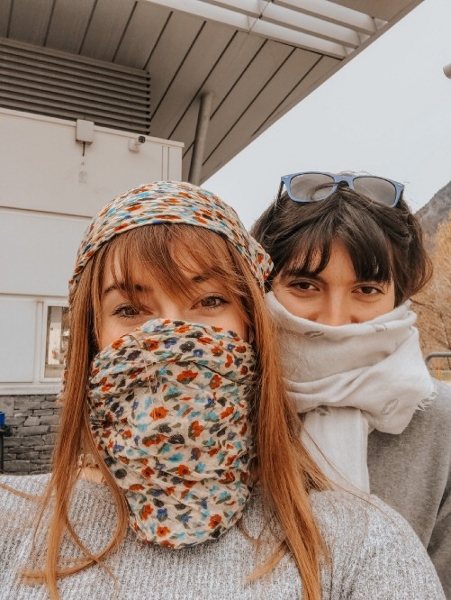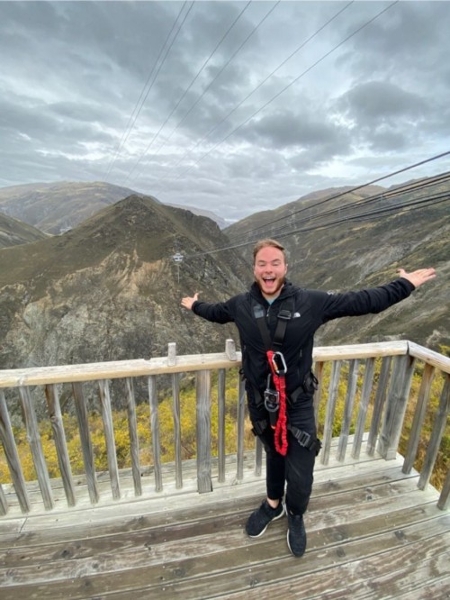
How COVID-19 affected students studying abroad

How COVID-19 affected students studying abroad
Linfield is well-known for offering an attractive study abroad program.
The spring 2020 semester seemed to be no different from previous semesters, with many students studying all across the globe. All of that changed in February and March 2020. While the COVID-19 pandemic has affected everyone, its impact on Linfield students studying abroad is quite different than those in McMinnville and Portland.
“This term I was studying viticulture in Italy,” said Emma Anderson ’20. “I have an agriculture background, and I was excited for this term of the program as I want to own a winery and grow my own grapes.” Anderson, who is set to be the first wine studies major to complete the five-year dual degree program, was abroad in Piacenza, Italy when the virus hit.
“Many people, myself included, didn’t take COVID seriously in the beginning, and as it got worse internationally there were domestic effects that helped me realize that something was wrong,” said Isis Hatcher ’21, who was studying abroad in Tokyo. “When people started going home, school was being delayed, and incoming study abroad programs were canceled. Japan was still trying to hold onto the Olympics, and once they postponed it there was no reason to pretend like everything was under control.”

Connor Ashmun ’21 was studying abroad in Dunedin, New Zealand this semester. “Being an island nation of only about five million people, the spread of the virus did not begin as suddenly or spread as rampant as it has in the states. As students began getting pulled back by their home institutions, we were all getting a little nervous.”
As February turned to March, the situation started to change for the three Linfield students.
“We were shut down pretty early on compared to elsewhere. However, since it is also a master’s degree, I couldn’t just come home at my will and continue at Linfield,” said Anderson. “When the school shut down it was originally for two days with a hope the problem will be resolved soon response. It then became a week shut down but still with messages saying hoping we will open on Monday. The stores around me were out of fresh produce and bread and meat the first day of the lockdown.”
“I remember I went to dinner on a Thursday, and that night I found out I had to go home,” said Hatcher. “I tried to push it another month, but after fighting with my parents for about four days, I asked Linfield to book a ticket home. I asked for a week so I could say goodbye, but IPO (Linfield’s International Programs Office) said they were getting me out on the first flight for safety purposes and flight cancellations. I left two days after I got that email.”
“During those 48 hours the country was in a frenzy,” said Ashmun. “Thousands flocked to the airports in fear of being stuck, liquor stores became completely sold out, puzzles hadn’t been in such high demand since the summer you spent with your grandmother, and many students including myself ordered our final meals from our favorite restaurants. Two days later the lockdown commenced. Sequestered to our flats as police patrol the streets, we began our new way of life.”

COVID-19 forced Anderson and Hatcher to return home due to safety concerns.
“I decided to leave with one of my roommates to drive to her family holiday home with the French government telling us to quarantine for 14 days. Once quarantine was over, I went and stayed with the roommate for another week until I got a flight home out of Paris. But the day before I was supposed to fly I was kicked off of the flight, because I had recently been in Italy so I then got a flight to Dublin, had to sleep there a night, and then I could get a flight to the states.
The night before I flew to Dublin, was when President Trump announced flights would be canceled and at that point, he had not said that U.S. citizens would be exempt so that was a whole other stress being added on. The whole time I was wearing a scarf as a mask just to train myself not to touch my face, with so many airports and public trains and buses I had to take I wanted to be as careful as I could knowing I was coming home to my family. Needless to say I was overjoyed when I finally got home.”
“I did have to cut my exchange about five months short, it was very overwhelming,” said Hatcher. “I went home because my Japanese university wasn’t offering online classes and kept postponing the start of the term. This has caused some issues for my ability to graduate in 2021, because I came home too late for online classes at Linfield and other institutions, and although my Japanese university will be starting online classes at the beginning of May, they are not offering me, and other international students this option.”
While Anderson and Hatcher returned home, Ashmun elected to stay in New Zealand.

“I unlike many of the hundreds of other international students was not forced to return home. Instead, IPO provided its students with the autonomy to choose. They understood that we had a more hands-on understanding of the current situation here than they could. This allowed the six of us to make our own choice. I am currently still here in New Zealand and plan to remain until the semester ends in June.”
While COVID-19 altered the anticipated study abroad experience for these students, they were still able to find a silver lining.
“Linfield has been really good with staying in contact, knowing where I was in quarantine, while I was trying to get home, if I made it to my hotels, etc.,” said Anderson. “However, France has stopped issuing visas until further notice and in order for me to continue with my master’s degree after this term, requires me to fly to San Francisco and get a French residency card for the year. So, momentarily there is just a lot up in the air, and with the next flu season starting around when I will need to fly out, it’s not very optimistic looking. But I’ll keep my fingers crossed.”
“I know how to self-educate more so than I did before,” said Hatcher.
“It is more important now than ever to care for each other and to make sure we are also taking care of ourselves,” said Ashmun.” These are trying times that have certainly tested our capacity to remain positive and thankful. We will get through this and come out the back end even stronger than we were before. Sco Cats!”